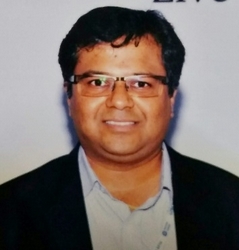Volume 7 Issue 12 December, 2017
Psychiatry remains a unique specialty with hardly any definitive objective diagnostic tests, so relying on Clinician’s assessment using standardized criteria. The assessments of same person, done at two different time period or by two different Psychiatrists may vary.
In the early 1970s, David Rosenhan, Professor of Psychology and Law at Stanford University in California conducted simple experiment that aimed to explore the reliability of psychiatric diagnosis in the “lunatic hospitals”. While anti-psychiatry movement was going on, this study was considered landmark that helped the “lunatic hospitals” learn about possibility of mis-diagnosing in hospital setting. As per the study report which was published in 1973, the experiment had two parts.
In the first part, 8 pseudopatients (5 Men & 3 Women), few of them psychology students gained entry into different Psychiatric hospitals by falsely complaining of hearing voices and after entering the hospital, they stopped complaining of voices. Their length of stay varied from 7 to 52 days. All but one was diagnosed with Schizophrenia as per DSM-II. In the only private hospital, the other person was diagnosed Manic Depressive illness. The Pseudopatients noted that 35 out of 118 other inpatients believed they were sane, which none of staff members had suspected. Inpatients could not get discharge, until they agreed with psychiatrists that they were mentally ill and accepted antipsychotics. Failing to detect the normality from abnormality, the difference when it existed, is statistical type 2 error.
In the second part, after results of part one were learnt, certain university hospitals keen to participate, were informed that pseudopatients could gain entry in the following 3 months. When documentation on 193 patients were examined, 23 patients were suspected as being “simulators” by at least one psychiatrist, 19 were suspect patients were by both psychiatrist and a staff member.
In fact Rosenhan did not send any pseudopatients during this period. This demonstrated differentiating sanity from insanity in inpatient setting was not error free.
This highlights the concept of Validity and Reliability of Psychiatric Diagnosis. Many Movies had the theme, where Psychiatrists fail to distinguish between sane and insane. General Public may have developed a fear of being inappropriately diagnosed and given injections or ECTs. Falsifying either way has implications on stigma, delay in treatment, legal or social problems.
This study had created doubts regarding diagnosis in psychiatry. But now in modern psychiatry with modern and more reformed psychiatric interview techniques with support of various investigation modalities like lab investigation, CT scan and MRI, diagnoses have become more accurate and scientific. There is a great deal of research is going on in biological and molecular psychiatry to find out more specific biological underpinning of psychiatric disorders for better diagnostic accuracy.

